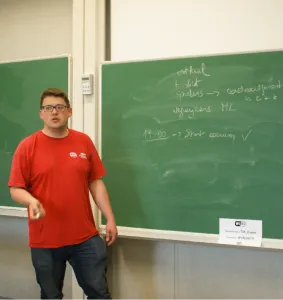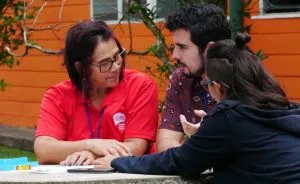AFS is one of very few comprehensive exchange programs in the world that provides 100% of both its in-bound and out-bound exchange services. This increases the amount of skills and knowledge AFS volunteers must manage on a daily basis.
To accomplish this, it is necessary to have a long-term training strategy for each of the volunteer career paths. Which skills and knowledge do volunteers need for the different pathways? How much training do each of the pathways require before a volunteer can be effective and appropriate in a certain role?
Creating a national or regional volunteer training pool is an effective strategy for maintaining training costs low and sustainable for the long-term. Training and development opportunities should be available to all interested volunteers as long as they meet the qualifications.




